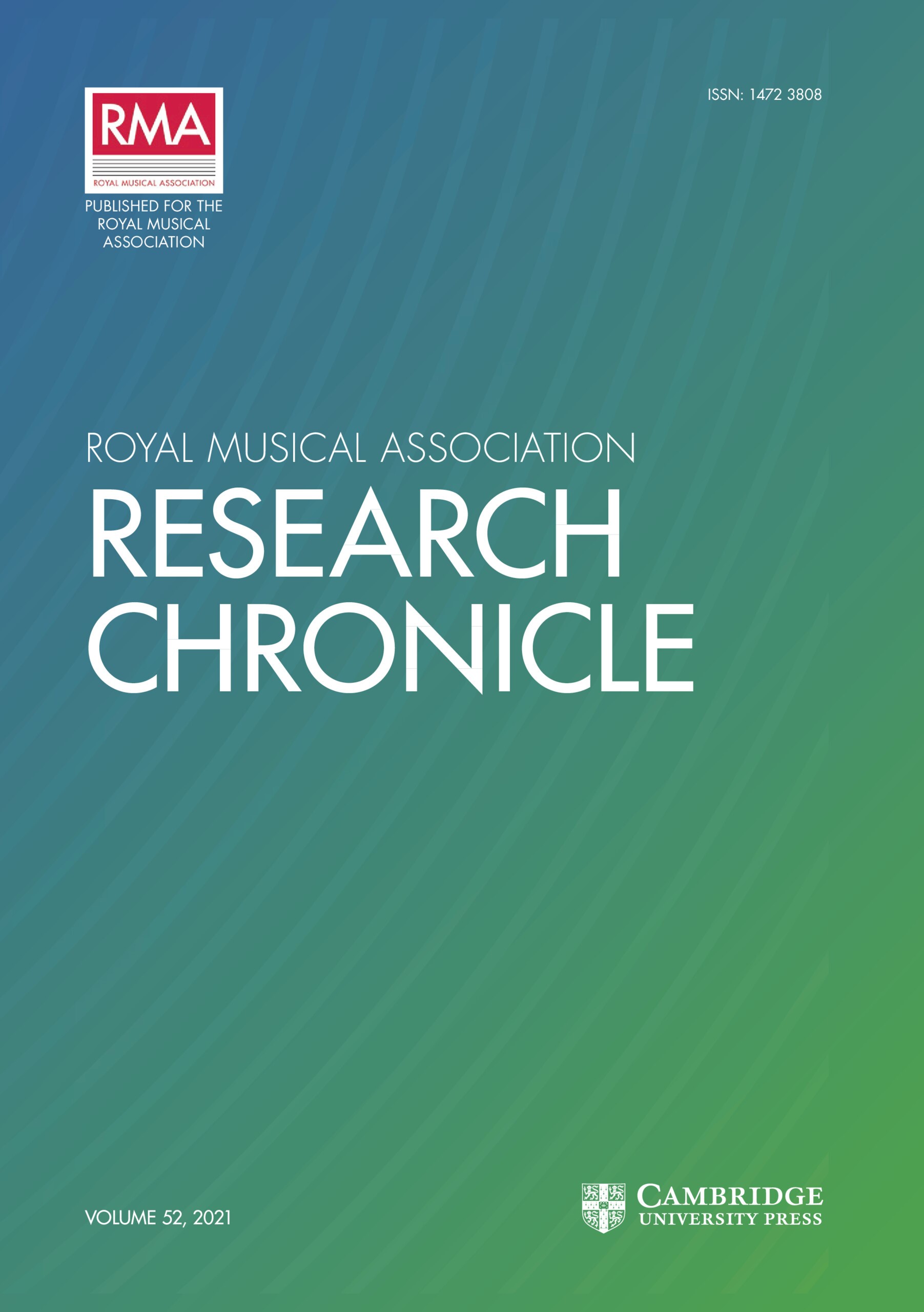Article contents
Lists of Musicians for Performances of Handel's Messiah at the Foundling Hospital, 1754–1777
Published online by Cambridge University Press: 01 January 2020
Abstract
Beginning in 1750, Handel gave annual performances of Messiah in the Chapel of the Foundling Hospital in London, and the series was continued by others after his death, until 1777. The Hospital's archives include complete itemised lists of performers for many of these events, and provide information about income and expenditure relating to all of the performances. The performers’ lists from 1754, 1758 and 1759 are well known, since they provide the only detailed contemporary record of singers and players for Handel's oratorio performances. However, the complete run of surviving lists enables us to track individual performers in London over a longer period, as well as revealing changes in the management, composition and remuneration of the ensembles. Transcriptions of the lists are here accompanied by an index of names and a summary analysis of the financial accounts for each performance.
- Type
- Original Articles
- Information
- Copyright
- Copyright © Royal Musical Association, 2010
References
1 According to Charles Burney, An Account of the Musical Performances … in Commemoration of Handel (London, 1785), ‘Sketch of the life of Handel’, p. 29, Handel ‘always employed a very numerous band, and paid his performers liberally’.Google Scholar
2 For the history of the performances during Handel's lifetime, see Burrows, Donald, ‘Handel and the Foundling Hospital’, Music & Letters, 58 (1977), 269–84; the performance on 12 April 1770 should be added to the calendar on p. 284. The article was republished, with minor revisions, in Handel the Philanthropist, a catalogue that accompanied the exhibition with that title at the Foundling Museum, London, in 2009.CrossRefGoogle Scholar
3 This replaced the organ that Handel had presented in 1750, when the Messiah performance was advertised as the occasion for the ‘opening’ of that instrument, but it was not ready in time.Google Scholar
4 See Judith Milhous and Robert D. Hume, ‘New Light on Handel and The Royal Academy of Music in 1720’, Theatre Journal, 35/2 (1983), 149. David Hunter, ‘The Irish State Music 1716–1742 and Handel's Band in Dublin’, Gottinger Händel-Beiträge, 11 (2006), 171–98, identifies musicians that were available in Dublin, but there is no list of the performers that he employed.Google Scholar
5 I used income records in order to derive the attendance figures in Burrows, ‘Handel and the Foundling Hospital’, 283–4.Google Scholar
6 The 1763 account is written on two sides of one folio. The original conjunct leaf is bound with it (as pp. 173–4), and was used for a calculation of the income from the performance after the deduction of expenses.Google Scholar
7 See Larsen, JensPeter, Handel's ‘Messiah’: Origins, Composition, Sources (London, 1957), chapter 4.Google Scholar
8 Two apparently erroneous names of soloists from the newspaper notices have been disregarded here: ‘Guardini’ in 1771 and Mrs Mattocks in 1772.Google Scholar
9 All performances were in the Hospital Chapel and were of Messiah, except 1749 [concert] and 1753(1) [service for Chapel opening]. Years shown in bold have itemised account lists with names of performers.Google Scholar
10 Figures in square brackets following the expenses indicate the numbers of performers: soloists+boys+paid chorus singers+unpaid chorus singers.Google Scholar
11 Figures in square brackets following the expenses indicate numbers of performers.Google Scholar
12 In years without itemised accounts the italicised totals may include Smith/Teede, Music Porters, Servants, Constables, Gate-keepers etc.Google Scholar
13 Payments, probably for supply of music and practical management, to J.C. Smith senior [S], William Teede [T] in 1751–67.Google Scholar
14 Includes incidental expenses (see note 12) as well as payments to performers.Google Scholar
15 Number of recorded tickets sold, + complimentary tickets [‘tickets given away‘].Google Scholar
16 Previously reported as 458.6.6.Google Scholar
17 Total for both performances.Google Scholar
18 70performers' tickets; 2 gns subsequently returned by Beard and 1 gn by Carbonelli.Google Scholar
19 19s coach hire (Gates) for Chapel Royal boys, 2 performances.Google Scholar
20 Total for both performances.Google Scholar
21 802 complimentary tickets at first, then additionally 6 to Handel and 6 to the Bishop of Worcester.Google Scholar
22 'Mr Storace for his trouble £2.2.0'; ‘For a Harpsichord £1.1.0'.Google Scholar
23 From newspaper advertisement, with list of players: no details in minute books.Google Scholar
24 £100 payment to Linley [Thomas Linley senior] has here been allocated £50 to orchestra, £50 to voices.Google Scholar
25 Includes benefaction of £20 from Linley.Google Scholar
- 1
- Cited by


